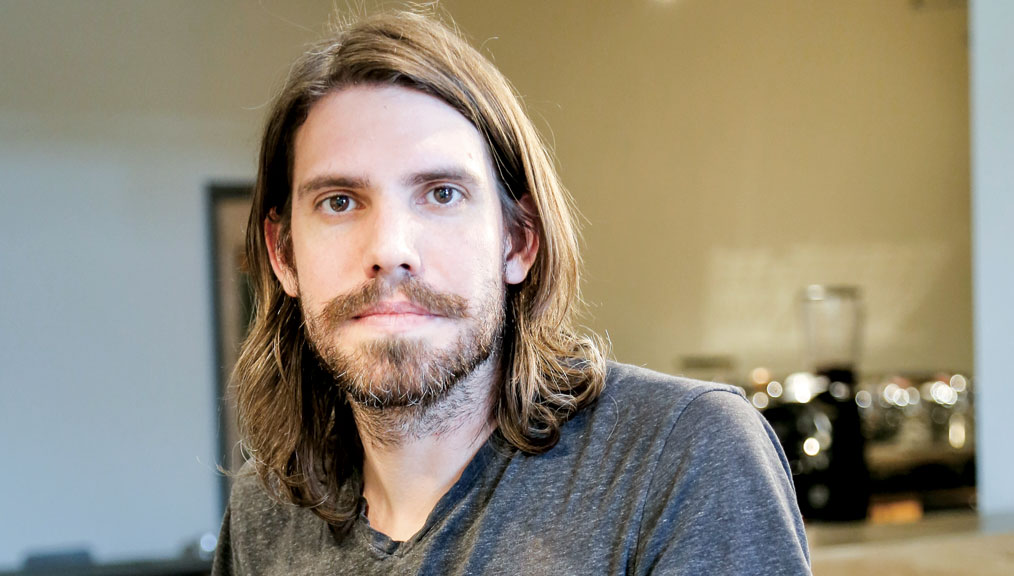(Photo: Christy Baugh.)
[T]im Hill had been in North Carolina for less than a month in 2004 when a new friend mentioned he should come to a coffee tasting. Hill was working at a Starbucks, the same gig he’d had while going to school in Chicago. His manager at that first café had been really into coffee, and regularly schooled Hill on coffees and preparations, introducing him to just how complex coffee could be. His new friend had said to him, “You like coffee, you work at Starbucks, you should come check out this company I work for.”
Less than a month later, he was working on the production line at Counter Culture Coffee.
From bagging coffee, Hill moved into roasting and then into quality control and then into purchasing before taking his current role as the roaster’s coffee buyer and quality manager. As he progressed up the company’s ladder, he never really interviewed for the new jobs. “Even the production job was a marginal interview,” he says, laughing.
In all of these positions, there’s something that grabs him. “Every piece of the industry, and every piece that I have worked on at Counter Culture is a beautiful blend of hardcore thinking, creativity, and mindfulness but also very hands-on,” he says.
Now, he’s working on projects as varied as producing better natural coffees in central Africa, fighting the potato defect there, and using electronic color sorting and UV lights to improve the evaluation of coffee.
This interview has been edited for clarity and space.
You came out of college with a degree in fiction and fine arts. How did a production-line job keep your attention?
I became interested in the different things I was bagging. It became, oh, you can tell the coffee that you’re bagging not just by the label, it looks different from another. It was intriguing from the start. I never went into any of the positions thinking, “Yeah, this is what I’m going to do for the rest of my life.” But it kept being something that kept me interested.
Did a sense of exploration remain in later jobs?
I had some great mentors, some of the most interesting and best people. You look at Peter Giuliano, Kim Ionescu, Cindy Chang, people who have gone on, and during their time at Counter Culture were working on everything from barista competitions to really in-depth looks at sustainability and how coffee works on the agronomy side to the culture, production, and facilitation of contracts. I was surrounded by people working on very different facets of coffee. I certainly love coffee and don’t see a future where I’m not doing something in coffee. It’s keeping me interested, keeping me engaged. You can keep digging that hole, keep gathering as much information as possible. There’s just no bottom.
How many of the positions that you’ve been in existed when you started at Counter Culture?
As we’ve grown, there are a lot more specialized jobs. When I was bagging coffee, you’d go blend coffee for a little bit, or if the delivery driver wasn’t there you’d deliver coffee too. If it needed to be done, there was someone who wanted to do it. Today, we have people who have a single focus. But you can still see the possibility of making coffee a profession.
Was there a moment when you realized you were in coffee for the long haul, or was it a gradual realization?
It’s been this gradual thing, and it continues to be. I get involved in projects. I tend to be mindful of what is going on in the industry, the big ideas and the big concepts. But I also really love working on these really finite problems or ideas that haven’t been fleshed out fully. Something I’m entrenched in is potato defect in Rwanda and Burundi. Burundi was the first origin I was asked to source from. I’m involved in the sourcing and purchasing of these coffees from this challenging origin that has lots of political issues, tons of infrastructure issues, and this defect that is unique and rare and totally unique in the world of food. So I’m talking to people at the embassy, people in logistics and the business side, and I’ve been involved in research the past year. You can start a project that is a kernel and it becomes much more grand.
How has your relationship to coffee changed?
A lot of what my job is today is trying to develop our supply chain. That means a lot more intense work with growers around the world. So I’m getting more and more entrenched on the supply side, what working with a producer looks like, how you make that long-term and sustainable, how you develop a good model for working with someone. I’ve been traveling to a lot of these places for seven or eight years now, but I still don’t have a firm understanding of theses origins or cultures. That just takes a lot of time.
—Cory Eldridge is Fresh Cup‘s editor.
















